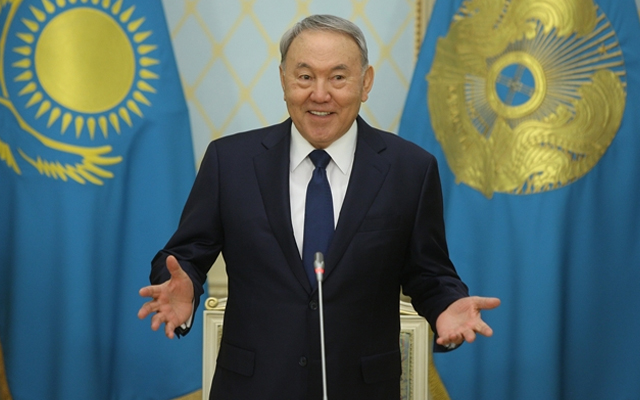Aiming to strengthen Kazakhstan’s economy, Astana has been launching a range of initiatives to attract foreign investment in what is Central Asia’s largest country and Caspian region’s third largest economy.
Measures designed to bring foreign capital to Kazakhstan include a five-year strategy plan developed by the Ministry for Investments and Development in collaboration with the World Bank. “The National Investment Strategy for 2018-2022” aims to increase the inflow of investment by 25 percent compared to 2016 figures.
“This strategy mainly focuses attracting foreign direct investment to the export-oriented, non-oil sector” of Kazakhstan’s economy, Minister Zhenis Kassymbek said at a government meeting on Monday.
The plan requires that the government increase transparency and predictability of investment policy, and improve federal legislation that will protect investments from institutional issues such as corruption. A plan to reduce imposing inspections of investors by state bodies is also being developed and already in the works with the Prosecutor General's Office. Tools for tracking and systematically identifying complaints regarding investor problems are all part of Astana’s robust initiative.
Kazakhstan ranked 35th in the World Bank’s “Doing Business 2017” ratings, published in October of last year, putting it at the top of the list of Caspian region and Central Asian countries. Kazakhstan ranked ahead of the regional giants Russia (#40) and China (#78), and some of the world’s most developed economies, such as Italy (#50), Brazil (#123), and rapidly emerging economies like Turkey (#69), making its place holding amongst 190 countries all the more impressive.
“Kazakh Invest” is Astana’s response to the call for making doing business in the country easier. Launched with a network of foreign representatives and regional branches, the platform provides a one window system where all of an investor’s needs are satisfied. Astana is also working to improve and simplify its heavily bureaucratic entry and exit system that requires foreign visitors register with the police.
“Given the international experience of developed countries, we support the proposal to abolish the migration card, if there is a visa for entry to the Republic of Kazakhstan,” Prime Minister Bakytzhan Sagintayev said earlier this month.
In addition to requiring a visa, Kazakhstan requires foreigners to obtain a migration card, which gets issued by the Border Service of Committee of National Security after registration with the local authorities. Cards are required and issued upon arrival to visitors age 16 and older.
With a GDP of over $128 billion, Kazakhstan is Central Asia’s wealthiest economy, generating over 57 percent of the region’s gross domestic product (GDP) in terms of purchasing power parity, according to US government statistics. As the world’s tenth largest crude oil exporter and holding the 15th largest amount of proved natural gas reserves, the country’s wealth is primarily derived from hydrocarbons. It is also rich with deposits of uranium, iron ore, manganese, chromite, lead, zinc, copper, titanium, gold and silver.
According to the country’s National Bank, in the first quarter of 2017, the total gross inflow of foreign direct investment into Kazakhstan amounted to $5.4 billion, almost 19 percent more than in the same period in 2016. The Netherlands, the United States, Switzerland, China and Russia topped the list of its foreign investors, bringing in nearly $4 billion.
The Netherlands is particularly active in Kazakhstan, as its share of investments totaled 39.5 percent during the period of January – September 2016. Oil and gas are particularly important to the small European country, as Royal Dutch Shell, Chicago Bridge & Iron Company, a large engineering, procurement and construction business, Witteveen + Bos engineering and consulting agency, and Van Oord, which specializes in dredging and land reclamation, all have investments in Kazakhstan.
The U.S. comes in at number two, as its share of investments amounts to over 15 percent. Chevron was the first American company to make inroads, as far back as 1993, when the energy giant established the Tengizchevroil joint venture in order to explore the world’s deepest producing supergiant oilfield, named Tengiz, located along the far northeastern shore of the Caspian Sea.







 Armenian sappers commenced on Monday mine-clearance operations in the territories adjacent to the Saint Mary Church in village of Voskepar (Armenia...
Armenian sappers commenced on Monday mine-clearance operations in the territories adjacent to the Saint Mary Church in village of Voskepar (Armenia...
 Russian Foreign Minister Sergei Lavrov has reasserted that Moscow has no intentions to stop the fighting in Ukraine, even if peace talks commence.
Russian Foreign Minister Sergei Lavrov has reasserted that Moscow has no intentions to stop the fighting in Ukraine, even if peace talks commence.
 Iran has refuted reports of alleged damage to Shimon Peres Negev Nuclear Research Centre located southeast of Dimona, Israel, during the recent air...
Iran has refuted reports of alleged damage to Shimon Peres Negev Nuclear Research Centre located southeast of Dimona, Israel, during the recent air...
 Iran’s Foreign Minister, Hossein Amir-Abdollahian, has labeled a foiled Israeli drone attack in certain parts of the country as a "failure" for Isr...
Iran’s Foreign Minister, Hossein Amir-Abdollahian, has labeled a foiled Israeli drone attack in certain parts of the country as a "failure" for Isr...



